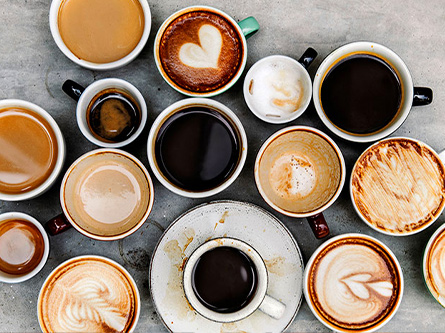Coffee (and caffeine) are an essential part of everyday life for most of us. But what about the times when you want to enjoy the taste and comfort of a cup of coffee without the energy buzz?
The answer: decaf coffee. However, new research shows that there is in fact caffeine in decaf coffee.
Dr. Ajay Sampat, assistant clinical professor and sleep medicine specialist at UC Davis Health, provides some answers on how big of a deal the small amount of caffeine is in decaf coffee.
Sampat explained this perplexing finding in a SELF magazine article titled “Turns Out Decaf Coffee Has Caffeine, Which Feels Like a Betrayal.” We break it down below:
Does your body notice the amount of caffeine in decaf?
Although there is some caffeine in decaf coffee, the small amount of caffeine isn’t really enough to affect most people, Sampat said. But that also depends on a few factors: Those include caffeine sensitivity (which is largely genetic) and caffeine tolerance (which develops with regular intake).
People who are “mildly or moderately sensitive to caffeine and/or consume caffeine regularly are unlikely to be affected by the small amount of caffeine in decaf,” Sampat told SELF. “For the minority of people who are really caffeine sensitive, even that small amount can be a lot."
If you’ve ever noticed negative side effects of caffeine – such as a quickening heart rate or feeling jittery, anxious, nauseous or restless, according to the U.S. National Library of Medicine – after a cup of decaf coffee, you may be sensitive to caffeine, per the SELF article.
"The tiny amount of caffeine in decaf could also be a potential issue for anyone trying to avoid or minimize caffeine intake due to a medical condition. That may include people with sleep disorders like insomnia, various liver diseases that cause impaired liver function, and migraine in which caffeine is a trigger, Sampat told SELF. And although caffeine can also potentially interfere or interact with various types of medications, Sampat said, it’s worth noting that these interactions have typically been observed with standard doses of caffeine, not the much smaller quantities found in decaf.”
If you are concerned about how caffeine could affect your health, check with your doctor.
Can decaf coffee affect your sleep?
This has a lot to do with the time of day you drink it. The effects of caffeine generally peak within an hour and can linger in the body for four to six hours, per the U.S. National Library of Medicine.
For example, drinking decaf at a 10 a.m. meeting likely won’t affect a person’s sleep 12 hours later. However, ordering decaf after dinner could pose a problem at bedtime, according to Sampat.
Caffeine in decaf isn't always bad
There are some instances in which the small amount of caffeine in decaf is good. This could include trying to wean yourself off caffeine or pushing back on a headache in the late afternoon.
“But whether that teensy hit of caffeine is enough to even register depends on your caffeine sensitivity and caffeine tolerance," according to the SELF article.
So there you go. The small amount of caffeine in decaf coffee isn’t something to fret about. Make sure to understand your caffeine tolerance and check with a medical professional if you have a medical condition.




